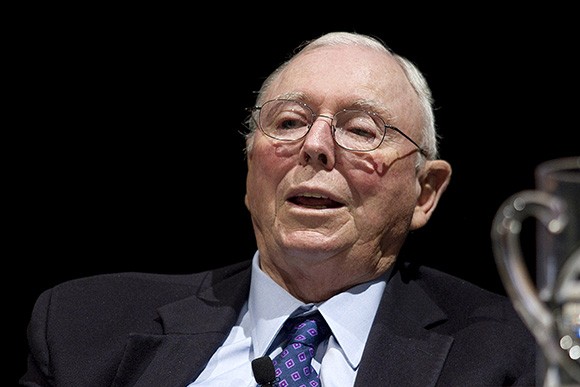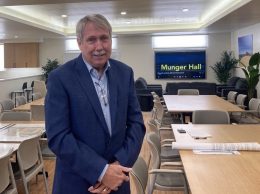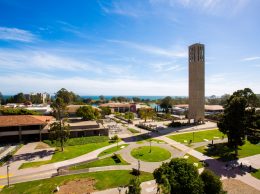Munger’s $65M gift raises the bar for UCSB
IN THIS ARTICLE
- Latest news Topic
- Staff Report Author
By Staff Report Friday, October 24th, 2014

Charles Munger, vice chairman of Berkshire Hathaway, speaks during an event in Pasadena in 2011. (Bloomberg News photo)
Berkshire Hathaway Vice Chairman Charlie Munger’s $65 million gift to UC Santa Barbara will shatter the record for the biggest gift in the university’s history and provide funding for Towbes Group to build visitor housing for the Kavli Institute for Theoretical Physics.
As reported earlier, Munger is funding part of the gift with the sale of 100 shares of Berkshire Hathaway, a disclosure in SEC filings that set off a flurry of news reports about UCSB’s next major gift. The source of the remainder of the donation was not disclosed.
Munger’s gift outpaces a $50 million gift by Oracle Corp. Vice Chairman Jeff Henley to fund UCSB’s research into energy efficiency and other science programs.
UCSB Chancellor Henry Yang heralded the gift of what he described in a statement as an “unimaginable guesthouse” for visiting researchers. He said the residence would enable “increased collaborations and scientific progress.” Construction on the three-story structure will begin in October.
One of several centers for theoretical physics on research campuses around the country, the Kavli Center or KITP is named for the late Fred Kavli, a Ventura County entrepreneur and real estate investor. The institute’s timbered façade is a bit of an homage to Kavli’s Norwegian ancestry.
“There is no place like KIPT anywhere else—and no better program—so it’s great to be able to give them a nice home of their own,” Munger said in a statement.
Currently headed by Lars Bildsten, the center was founded in 1979 as the Institute for Theoretical Physics. It was renamed after a major gift from the Kavli Foundation helped fund a new building for the center.
Munger, who studied physics and mathematics as an undergraduate, first teamed up with Berkshire Hathaway Chairman Warren Buffett in 1978. The Oracle of Omaha and Munger, a lawyer-investor with offices in Los Angeles, have created one of the most successful partnerships in the history of investing.











